Discover how plastic has quietly crept into your Christmas traditions and explore easy, practical ways to celebrate the season without the stress of plastic chemicals looming.
Christmas is a cherished time for many Aussie families—a season brimming with joy and celebration.
For those who fully embrace the festivities, Christmas often means decking the halls, buying thoughtful gifts, and preparing feasts to share with loved ones.
From bustling city streets and shopping malls to quiet country homes, the magic of Christmas can be seen everywhere. Decorations light up every street corner, roundabout and building façade.
But for most, the true magic of Christmas isn’t found in the decorations or gifts.
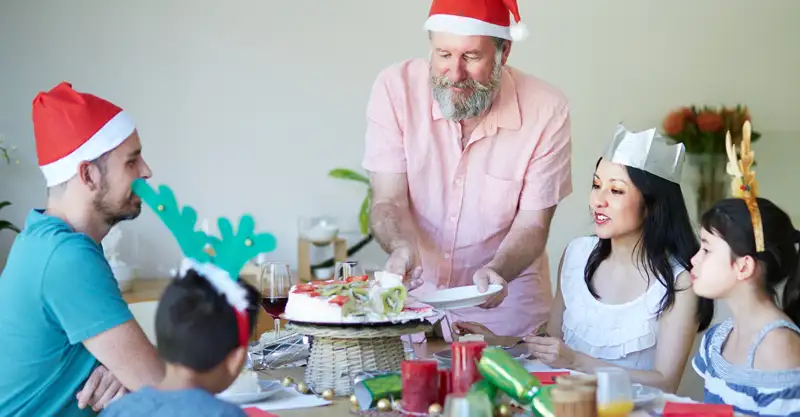
It’s in the simple, heartfelt moments that can’t be wrapped or bought—like cozying up for a Christmas movie, baking gingerbread, or gathering the whole family around one table.
It’s in the laughter, the shared meals and the look of surprise on Dad’s face when you open a gift addressed to you from him.
At its core, Christmas is about creating cherished memories with those we love.
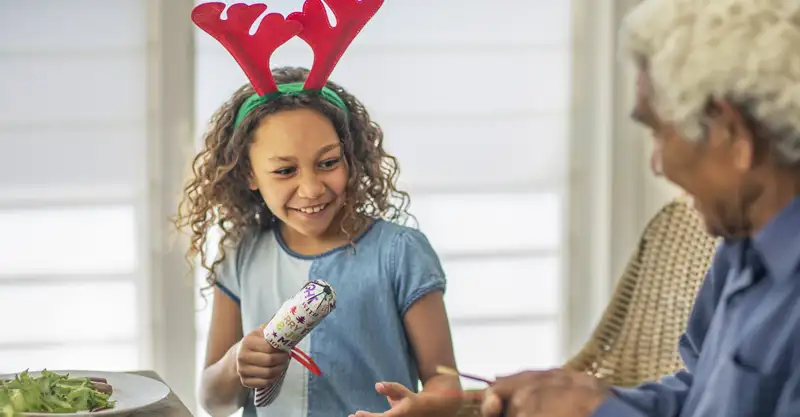
Yet, there’s an unwelcome guest quietly crashing the party each year.
At the risk of sounding like a Grinch, it’s worth acknowledging that Christmas has become closely tied to plastic. In fact, most holidays and celebrations have.
Big events often encourage an overproduction of plastic products, which linger far beyond the festivities.
Not only is plastic harmful to our natural ecosystems, but research also reveals that the chemicals found within plastic are linked to alarming health concerns (you can read more about this and Minderoo’s research here.
So, how can we maintain our Christmas spirit while showing toxic plastics the door?
It starts with small changes.
Discover five unexpected ways that plastic sneaks into your Christmas traditions and learn how to embrace more sustainable and safer alternatives, free from the stress of exposure to harmful plastic chemicals.
Note: We understand that Christmas isn’t a joyful time for everyone. If you’re experiencing hardship or need mental health support, please know that you’re not alone and support is available. You can reach out to Lifeline at 13 11 14 or read their holiday support guide.
5 unexpected items lurking in your life at Christmas
Plastic is so ingrained in our daily lives that it’s easy to overlook its presence—even in some of our most beloved Christmas traditions.
Here’s a list of 5 Christmas items that contain plastics and some alternatives you can opt for instead for a stress-free celebration.
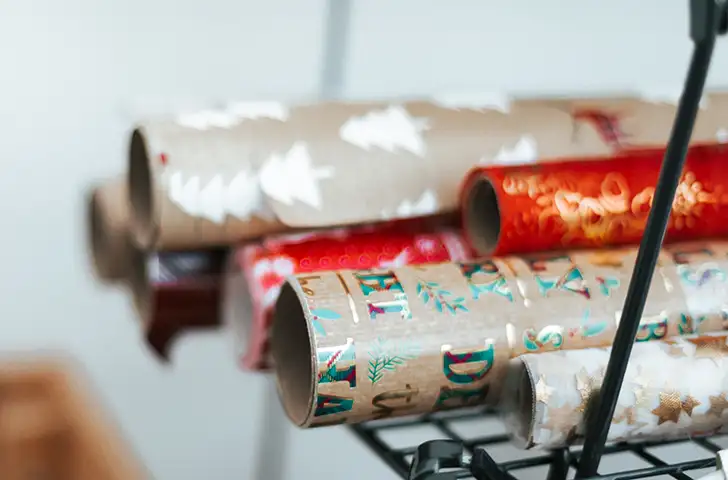
Wrapping paper
We know that glide with the scissors is satisfying, but it usually indicates at least some presence of plastic. If your wrapping paper has a glossy or glittery finish to it, it likely contains or is coated with paper plastic composite, coated with plastic varnishes or films. Foil wrapping paper is often made from polypropylene.
Instead, you can try reusable wrapping paper or brown craft paper. You can keep it festive by adding your own personal touch, like painting on red and green patterns or adorning it with twine or greenery.
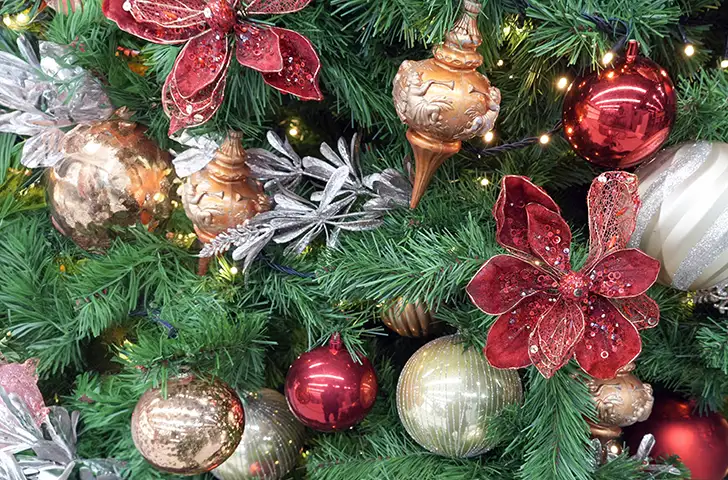
Plastic decorations
Plastic has become so common that we have learnt not to register it. But when you look around at the most common of decorations, they’re often made of plastic.
Tinsel is typically made from a particularly toxic plastic, polyvinyl chloride (PVC), coated with a thin layer of foil. PVC contains chemicals of concern such as phthalates and BPA, which affect our hormones and increase the risk of heart disease and type two diabetes; and toxic metals including lead and cadmium, which are potentially cancer causing.
But fret not. There are plenty of beautiful plastic-free options made from wood, paper or glass. You could even make a fun holiday activity out of crafting your own decorations.
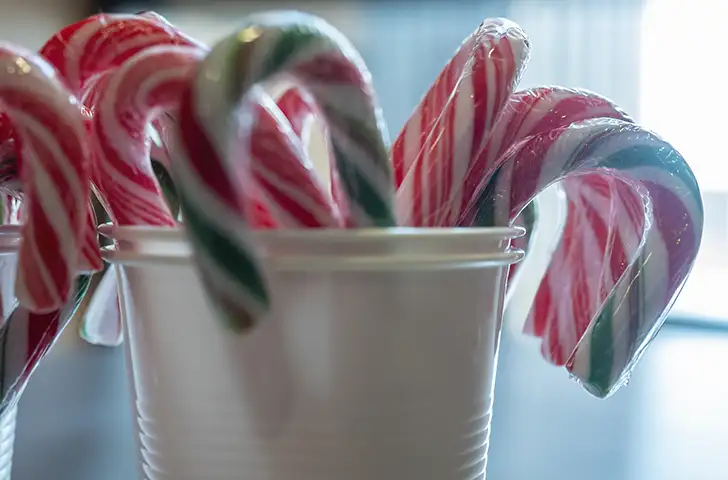
Candy canes
Candy canes are a Christmas classic, but their plastic wrapping is not. This year, why not give making your own candy canes a go? It can make for another fun and festive activity that helps reduce your exposure to unnecessary plastics.
The tightly hugged plastic wrapping that often covers our candy canes is likely to include chemicals of concern BPA and phthalates, linked to neurodevelopmental issues, heart disease, obesity and type two diabetes.
Alternatively, consider gifting non-packaged edible treats, like baked cookies or a gingerbread house, allowing you to spread holiday cheer minus the plastic.
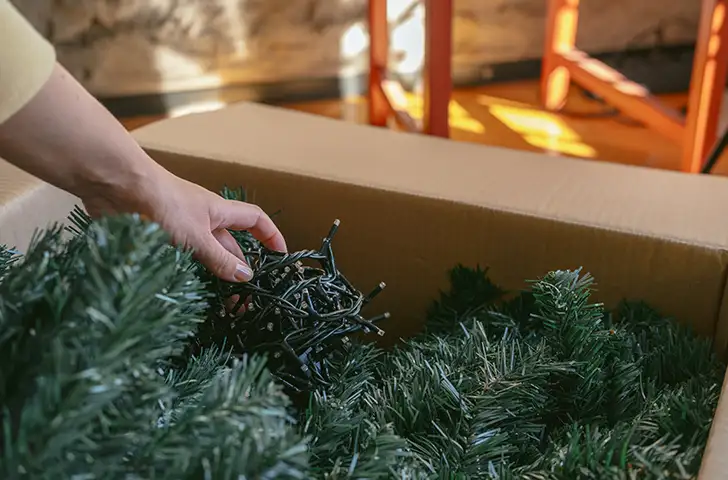
Christmas trees and wreaths
Christmas trees and wreaths are iconic, but somewhere along the way, we swapped real ones for plastic replicas that are usually made of PVC or polyethylene, again containing many chemicals of concern.
This year, why not go back to basics? A real tree or a wreath made from clippings in your garden brings a touch of nature into your home—and we guarantee it will smell a lot nicer than plastic ever could.
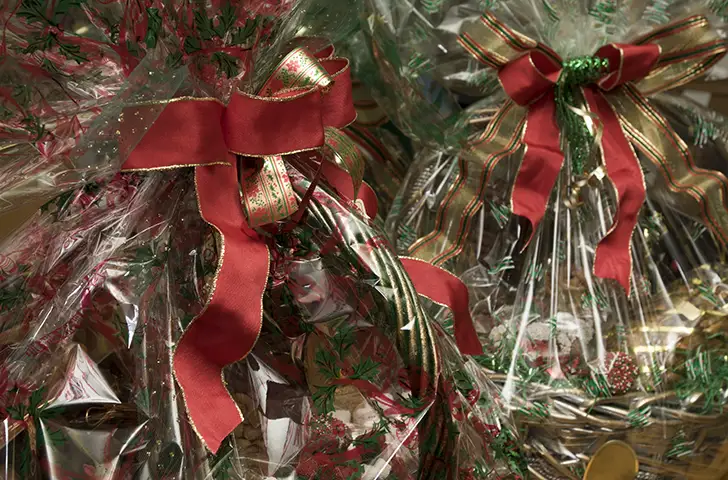
Packaging, packaging and more packaging
Plastic packaging is everywhere at Christmas. Many gifts arrive wrapped in layers of plastic before you even think about how to present them. These thin plastics are potentially leaching toxic chemicals like BPA and phthalates into your thoughtful gift. Shopping in-store gives you more control over packaging, and you can also consider gifting experiences or homemade treats instead of physical items to cut down plastic’s presence.
With just a few small changes, you can celebrate Christmas in a way that’s just as joyful but without all the hidden plastic and their toxic chemicals.
Subscribe to our newsletter
Want more tips and updates on reducing your exposure to plastic? Subscribe to our newsletter here and get the latest news and insights delivered straight to your inbox.
By signing up with your email, you agree to Minderoo Foundation’s Privacy Policy.
Subscribe to our newsletter
Want to learn more about Minderoo’s research into the toxic chemicals in common plastics? Follow this link to dive deep.